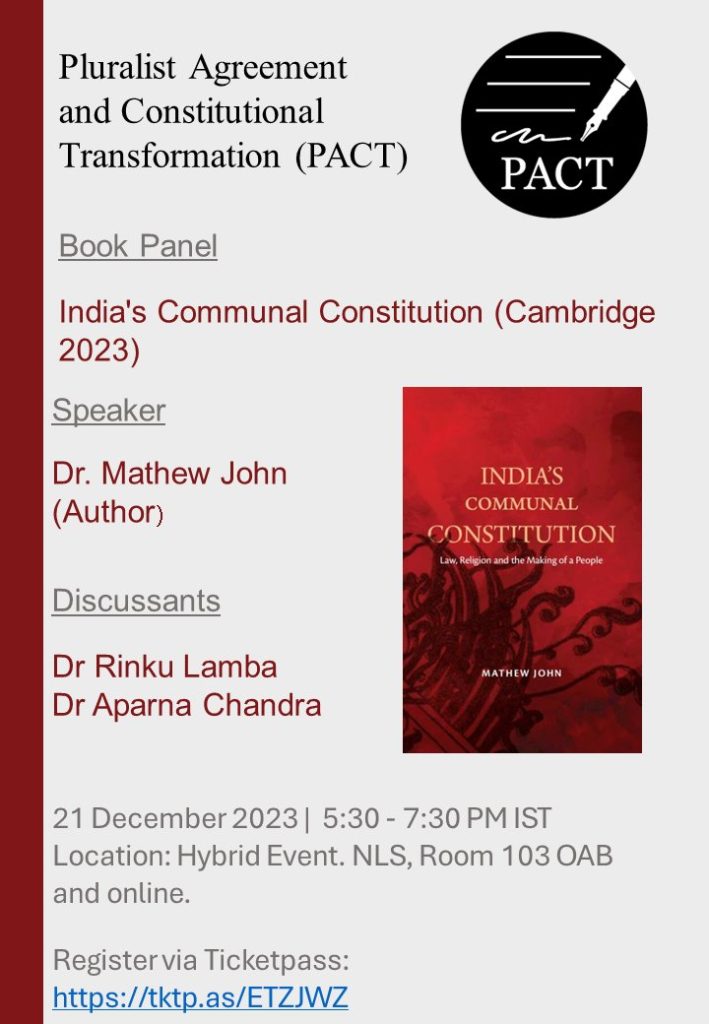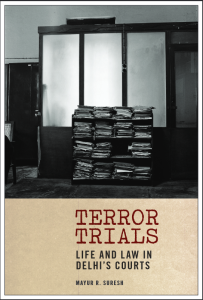
The Pluralist Agreement and Constitutional Transformation (PACT) project invites you to a book discussion of Dr. Mathew John’s ‘India’s Communal Constitution: Law, Religion, and the Making of a People‘ on Thursday, December 21, 2023.
Dr. Mathew John, is Associate Professor and Executive Director, Centre on Public Law and Jurisprudence at the Jindal Global Law School (JGLS). Dr Rinku Lamba and Dr Aparna Chandra will be the discussants.
The discussion will take place from 5.30 pm onwards (IST) in a hybrid format. The offline discussion will take place at the Old Academic Block of the NLSIU campus. This session will follow our usual format of the author presenting their work (30 minutes), after which the discussants will provide their comments (10-15 minutes each). This will be followed by questions from the audience.
The PACT project aims to draw lessons regarding the democratic legitimacy of constitutions from the Indian example, while analysing its unfulfilled potential for pluralism and democracy in the present. In the past we have hosted book panels discussing Kalpana Kannabiran’s ‘The Speaking Constitution‘, Alexander Hudson’s ‘The Veil of Participation‘, and most recently, Achyut Chetan’s ‘Founding Mothers of the Indian Republic‘.
This event is open to all including members of the public. Anyone interested to participate may attend in person or via zoom (link provided above).

 In this week’s faculty seminar, Dr. Mayur Suresh, Senior Lecturer in Law, SOAS, will be presenting on his book titled “Terror Trials: Life and Law in Delhi’s Courts” on Wednesday, 20th December, 2023. Dr. Manpreet Dhillon, Academic Fellow will be the discussant.
In this week’s faculty seminar, Dr. Mayur Suresh, Senior Lecturer in Law, SOAS, will be presenting on his book titled “Terror Trials: Life and Law in Delhi’s Courts” on Wednesday, 20th December, 2023. Dr. Manpreet Dhillon, Academic Fellow will be the discussant.